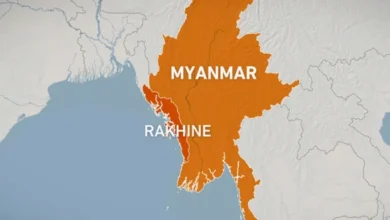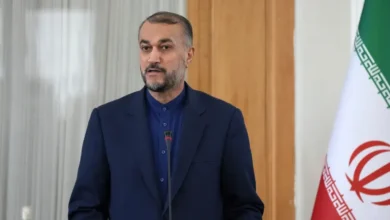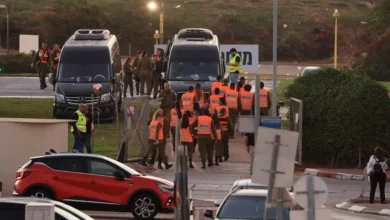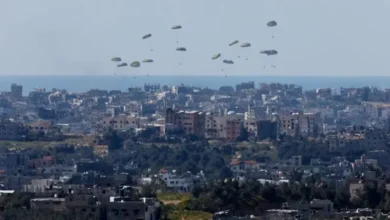Are commercial interests driving Uganda’s military operations in DR Congo?
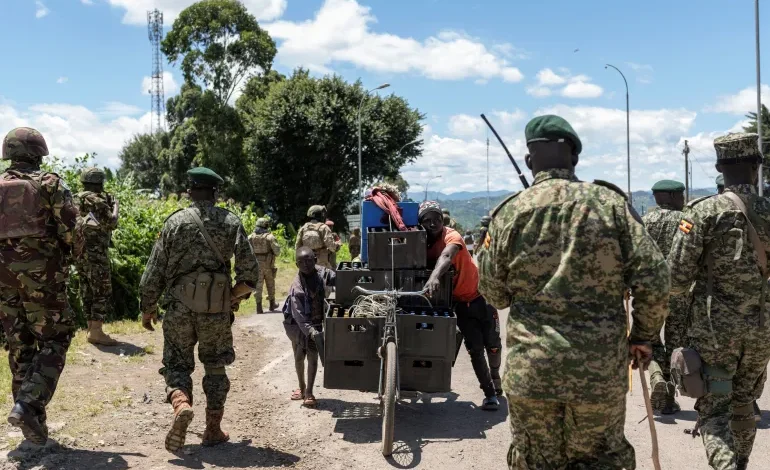
It was June 5 when Ugandan soldiers arrived in Kasenyi, a town on the shores of Lake Albert in Ituri province in eastern Democratic Republic of the Congo (DRC).
Uganda’s army chief, General Muhoozi Kainerugaba, posted a video on X showing what he said were residents “enthusiastically” welcoming the soldiers, as Chris Magezi, an aide to Kainerugaba and at the time acting spokesperson for Uganda’s People’s Defence Forces (UPDF) said the army had “occupied” it together with another Congolese town, Tchomia.When Kampala first deployed troops to eastern DRC in November 2021, they were in pursuit of the Allied Democratic Forces (ADF), a rebel group with Ugandan roots whose strongholds were located in Beni territory, in DRC’s North Kivu province. The group initially fought against the Ugandan government in pursuit of regime change, but from the 2010s onwards, it began aligning itself with the Islamic State Central Africa Province. In Uganda, the government accused the ADF of being behind several high-profile assassinations, while both countries blamed it for massacring civilians.
In 2021, during that first joint military operation between the Ugandan and Congolese armies, towns like Kasenyi remained unaffected.
But today, the Ugandan army’s footprint has expanded well beyond its original mission and into Ituri, by its own admission. This is despite the fact that the ADF, which has since dispersed and relocated far from its traditional bases, is not active in Kasenyi or other areas where the military has recently been operating, observers note.In a statement in February, General Kainerugaba declared that Uganda would secure the entire border it shares with DRC: “That is our sphere of influence. Nothing will happen there without our permission,” he said on X.
On social media, Kainerugaba has frequently inserted himself into conversations about internal conflicts and the regional dynamics of the Congolese crisis.
He has openly expressed support for the M23 rebel group that has made rapid advancements in eastern DRC this year, seizing control of the capital cities of both North and South Kivu provinces.
M23 is reportedly backed by Rwanda and Uganda, according to various United Nations reports, though both countries have denied these allegations.Economic interests
The expansion of the Ugandan army’s area of operation reflects Kampala’s shifting priorities in eastern DRC, according to army spokesperson Felix Kulayigye. He said the army is protecting Congolese communities as well as Uganda’s economic interests in the neighbouring country.“Who is consuming Uganda’s products? Can commerce take place where there is instability? If we have commercial interests in eastern DRC, are those protectable or not?” Kulayigye told Al Jazeera.
From the start, Uganda’s military presence in DRC has carried an economic subtext.
According to a 2023 report by Deutsche Welle, as part of the agreement with the Kinshasa government to combat the ADF, Uganda was granted permission to build tarmac roads connecting key towns in DRC – routes designed to boost the movement of goods and deepen Uganda’s trade footprint in the region.
Although the text of the agreement was not released to the public, Ugandan soldiers, military equipment and road construction equipment entered all entered DRC in November 2021.
Solomon Asiimwe, an international relations lecturer at Nkumba University in Kampala, says although Uganda’s pursuit of the ADF may have appeared to be security-driven, the overriding factor was economic, though this was “hidden under the carpet”.
While some Congolese may be angered by Uganda’s expanded deployment, he suggests they should also consider the benefit of a steady supply of goods from Uganda. “Even Congolese have interests in supplying minerals to Uganda; they benefit from infrastructure and peace,” he said.
Eastern DRC’s market has become a battleground of its own. A recent analysis by The East African valued regional exports to the DRC at $2.9bn over nearly three years, with Uganda commanding a 68 percent share. Kenyan financial institutions have also staked their claim, entering DRC through bank acquisitions and the market was highly profitable – until M23’s advance this year halted their expansion.


